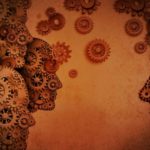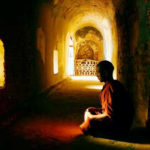Recent Comments
- Vajragoni on The Lankavatarian Book of the Dead
- Scott on The Lankavatarian Book of the Dead
- Scott on The Lankavatarian Book of the Dead
- Vajragoni on Insights into Voidness
- Vajragoni on Is there an Afterlife?
-
Recent Posts
Categories
- A Darkness Visible
- A Docetic Assessment
- A Mystical Odyssey through the Sagathakam
- AI Creations
- Akṣayamatinirdeśasūtra
- Akṣhobhya’s Pure Land
- Ālaya-vijñāna
- Anūnatvāpūrṇatvanirdeśaparivarta
- Ariyapariyesanā Sutta
- Ascending the Noble Mountain of Primordial Perfection
- Asceticism
- Ashtavakra Gita in Light of the Unborn
- Audiobook
- Bankei Zen
- Beyond the Ascent
- Beyond the Rainbow Body
- Black Dragon Eye Mandala
- Bodhicitta
- Books
- Buddhadharma
- Buddhism’s Black Holes
- Buddhist Anecdotes
- Buddhist Hells
- Buddhist Meditations on the Tarot
- Chuang-Tzu
- Contemporary Musings
- Ḍākiṇī
- Dāsbodh
- Dharmakaya Abbey
- Dharmakaya Stick
- Divine Revelation
- Doctrine of the Void
- Dust Contemplation
- Ekacitta: Advanced Studies in Dark Zen
- Entry into the Dharmadhātu
- Eremitical Dhyani Meditations
- Exploring the Book of Revelation
- Gnostikos
- Hsin Hsin Ming
- Journey to the Center of the Mind
- Karma and Rebirth
- Korean Sŏn
- Kulayarāja Tantra—The Motherly Buddha
- Little Office of Our Lady of the Void
- LSD and Psychedelic Buddhism
- Māṇḍukya Kārikā
- Mañjuśrī Teaches Prajñāpāramitā
- Māra and Satan
- Meet the Buddhas
- Meister Eckhart
- Mud and Water: Bassui Zen
- Mystagogia
- Nirvana
- Notes from the Iron Stupa
- Nothingness in Nāgārjuna and John of the Cross
- Obscure Religious Cults
- Preparation for the Afterlife
- Primordial Qigong
- Reflections on the Saṃdhinirmocana Sūtra
- Sessions with Grok
- Spirituality
- Springtime with Tozen
- Terma: A Mind Film by Vajragoni
- The Afterglow
- The Awakening of Faith
- The Bhagavad Gita
- The Book of Bodhi
- The Cloud of Unknowing in Light of the Unborn
- The Diamond Sutra
- The Divine Ātman
- The Divine Liturgy of Vajrasattva
- The Doctrine of Awakening
- The Dragon Mind of Zen Tarot
- The Elucidation of Consciousness
- The Experience of No-Self
- The Great Perfection of the Unborn Mind: A Book of Privy Counseling
- The Heart Sutra
- The Hermit's Den
- The Khaggavisāṇa Sutta: A Rhinoceros Horn
- The Lankavatara Sutra
- The Lankavatarian Book of the Dead
- The Lion's Roar of Queen Śrīmālā
- The Lotus Sutra
- The Mahāparinirvāṇasūtra
- The Naga Chronicles
- The Platform Sutra
- The Ratnagotravibhāgaśāstra
- The School of the Spirit
- The Secret Golden Light of the Unborn
- The Soul
- The Śūrańgama Sūtra
- The Sutra of Primordial Enlightenment
- The Tathāgatagarbhatārā Tantra
- The Udāna
- The Unborn Mind Mythos
- The Unborn Mind Sessions
- The Unborn Odyssey: A Novel
- The Vajrasamādhi Sutra
- The Vimalakirti Sutra
- The Yogasūtras of Patañjali
- The Zen Teaching of Bodhidharma
- The Zen Teaching of Instantaneous Awakening
- The Zen Teachings of Huang Po
- Theologia Mystica
- Tozen Teaching
- Tsung-mi: An Intimate Study
- Unborn I Ching
- Unborn Light Reiki
- Uncategorized
- Vasubandhu and the Absolute
- Wisdom from the Masters
- Wordsworth and Zen
- Yoga of the Manomayakāya
- Zen
- Zuowang
Archives
- May 2025
- April 2025
- March 2025
- February 2025
- October 2024
- August 2024
- February 2024
- January 2024
- December 2023
- November 2023
- October 2023
- September 2023
- August 2023
- July 2023
- June 2023
- May 2023
- April 2023
- March 2023
- February 2023
- January 2023
- December 2022
- November 2022
- October 2022
- September 2022
- August 2022
- May 2022
- April 2022
- March 2022
- February 2022
- January 2022
- December 2021
- November 2021
- October 2021
- September 2021
- August 2021
- May 2021
- April 2021
- March 2021
- February 2021
- January 2021
- December 2020
- November 2020
- October 2020
- September 2020
- August 2020
- May 2020
- April 2020
- March 2020
- February 2020
- January 2020
- December 2019
- November 2019
- October 2019
- September 2019
- August 2019
- June 2019
- February 2019
- January 2019
- December 2018
- October 2018
- August 2018
- April 2018
- March 2018
- February 2018
- January 2018
- December 2017
- November 2017
- October 2017
- September 2017
- August 2017
- May 2017
- April 2017
- March 2017
- February 2017
- January 2017
- December 2016
- November 2016
- October 2016
- September 2016
- August 2016
- July 2016
- May 2016
- April 2016
- March 2016
- February 2016
- January 2016
- December 2015
- November 2015
- October 2015
- September 2015
- August 2015
- July 2015
- June 2015
- May 2015
- April 2015
- March 2015
- February 2015
- January 2015
- December 2014
- November 2014
- October 2014
- September 2014
- August 2014
- May 2014
- April 2014
- March 2014
- February 2014
- January 2014
- December 2013
- November 2013
- October 2013
- September 2013
- August 2013
- May 2013
- April 2013
- March 2013
- February 2013
- January 2013
- December 2012
- November 2012
- October 2012
- September 2012
- August 2012
- May 2012
- April 2012
- March 2012
- February 2012
- January 2012
- December 2011
- November 2011
- October 2011
Meta
Category Archives: Karma and Rebirth
Karmic Liberation: The Great Synthesis

Tibetan, or more specifically, Vajrayana Buddhism, offers the great synthesis of all that has transpired in this series: Ritual prayer to lighten the burden of the Bardo; Dhyana-techniques to bring the effects of karma to their completion; Divine Union with the karma-family and Amoghasiddhi; the Yoga of the Thatness; Dogzchen rigpa and Samantabhadra’s matrix.
Karma’s Repository

The advent of Mahāyāna Buddhism that coincided with the beginning of the Christian-era gave birth to the most sublime innovations in Buddhist-thought that have not been surpassed even to this day. Colorful, dynamic and transcendent in scope, resplendent with rich metaphorical language founded in the rich soil of sūtra and śāstra laden literature, the Mahāyāna shaped a new and indefatigable-direction for the nature of the karma-effect. According to the Sarvāstivādin and Theravādin doctrine, one’s goal in unraveling the karmic-equation was to slowly and diligently eradicate it through determined demolition of its defilements, in essence, being empowered to save-oneself. In Mahāyāna doctrine the emphasis was not so much in eradicating its effects, but standing above and beyond it by not focusing so much on individual-salvation, but by the salvation of others by practicing the six perfections or pāramitās. This found its inestimable worth in the cult of the Bodhisattvas. Generally, the causes of birth for ordinary beings are past deeds (karman) and defilements (klesa). But the Bodhisattva’s birth is unique in that it is caused exclusively by his will and purpose. Thus, a Bodhisattva volunteers to be born (saṃcintyabhavopapatti—intentional birth) into a life of suffering for the precise purpose of alleviating the suffering of sentient beings.
Posted in Karma and Rebirth
Tagged Alaya vijnana, Awakening of Faith, Cittapada, Cittidhatu, Fa-shang, John of the Cross, Lankavatarian Book of the Dead, Mahāyāna Buddhism, paramartha, paravrtti, ritambharā, saṃcintyabhavopapatti, Seedless Contemplation, Tsung-mi, turn-about, Yogacara
Leave a comment
Karmāśaya

In conjunction with earlier blogs in this series, Patañjali’s work does not beat around the bush—there needs to be a daily purification of the sattva, of one’s being. If not undertaken, future karmic seeds will continue to run amok. Mircea Eliade writes eloquently about being conditioned and governed by the seeds of karma:
Lord Over Karma

The Unborn Bhagavad Gita is a manual in being free from the negative effects of karma. The hyperlink indicated is a chapter in the series on the Yoga of Discernment. The Unborn Lord of Yoga (portrayed as Krishna) indicates to a disheartened Arjuna:
Kammanirodha

The emphasis on karma (kamma) in Early Buddhism was upon a series of factors that comprise the very angst of life: individualistic, sociological, and psychological components all constitute early doctrinal factors resulting in karmic-effect. Essentially, Kamma referred to what an individual inherits from oneself in some previous form of existence—not what one inherits from their ancestors. Hence, the Buddha and his sages declared that it was not so much [the action] itself, but rather the exclusive-intentional willing of the individual that is of decisive significance in determining karmic consequences. This Buddhaic-teaching had a two pronged effect upon disciples: one became remorseful over their karmic-[intent] because the wrong they committed could never be [undone]:
The Sacrifice is the Thing

Vedic Origins of the Karmic Doctrine and Rebirth
Before becoming a doctrinal formulation in the early Upanisads, karma had its antecedent roots in ancient Vedic ritual constructions:
Posted in Karma and Rebirth, Spirituality
Tagged adhoyana, Agni, Agnicayana, antyesti, devayana, Goma Ritual, Herman Tull, iṣṭa, iṣṭāpūrta, Karman, pitryana, purusha, Rgveda, sacrifice, Shingon, Y. Krishan
Leave a comment

